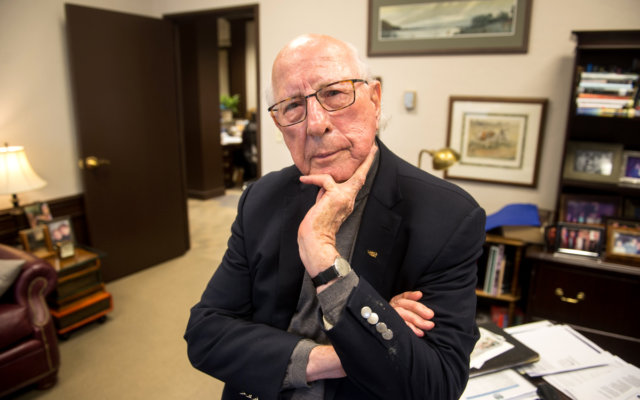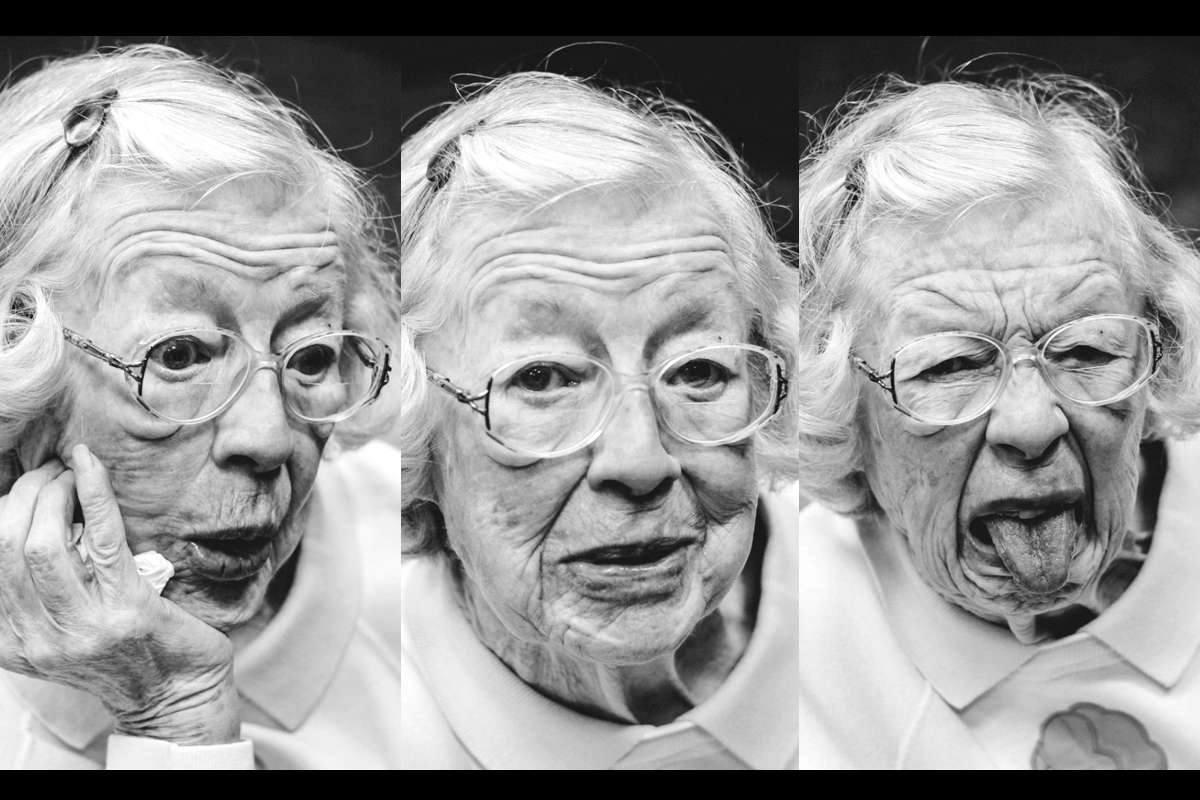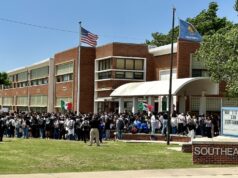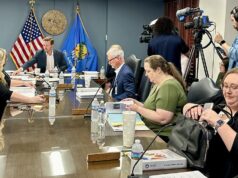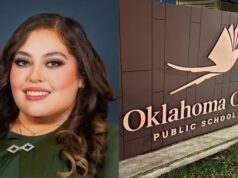A print of Picasso’s “Don Quixote” leans against a wall alongside a second picture of the famous character in Gene Rainbolt’s downtown Oklahoma City office.
The dreamy, errant-knight Quixote is a character to whom Rainbolt can relate.
“We’ve both tilted at a few windmills in our time,” Rainbolt said, quoting, “‘to dream the impossible dream… to dream what might be.'”
Born and raised in a single-parent home during the Great Depression, Rainbolt has had many dreams. Like the man himself, those dreams evolved over time. From a promising career in academia to Army service in Korea and Japan, Rainbolt is best known for revolutionizing Oklahoma’s outdated and backward banking system, a feat that took nearly 30 years to achieve.
He built the largest state-chartered bank in Oklahoma but also helped dozens of overlooked-yet-promising children attend university. He challenged the Oklahoma Legislature, and he adopted a mission to create a state in which every child could have the opportunity to succeed.
And he hired Willie Nelson to play his birthday party, twice.
An avid supporter of children, opportunity, education and commerce, Rainbolt is part romantic, part businessman and part champion. He is part grit, part perseverance and part generosity.
And it all started in a little town called Norman.
Dust Bowl days
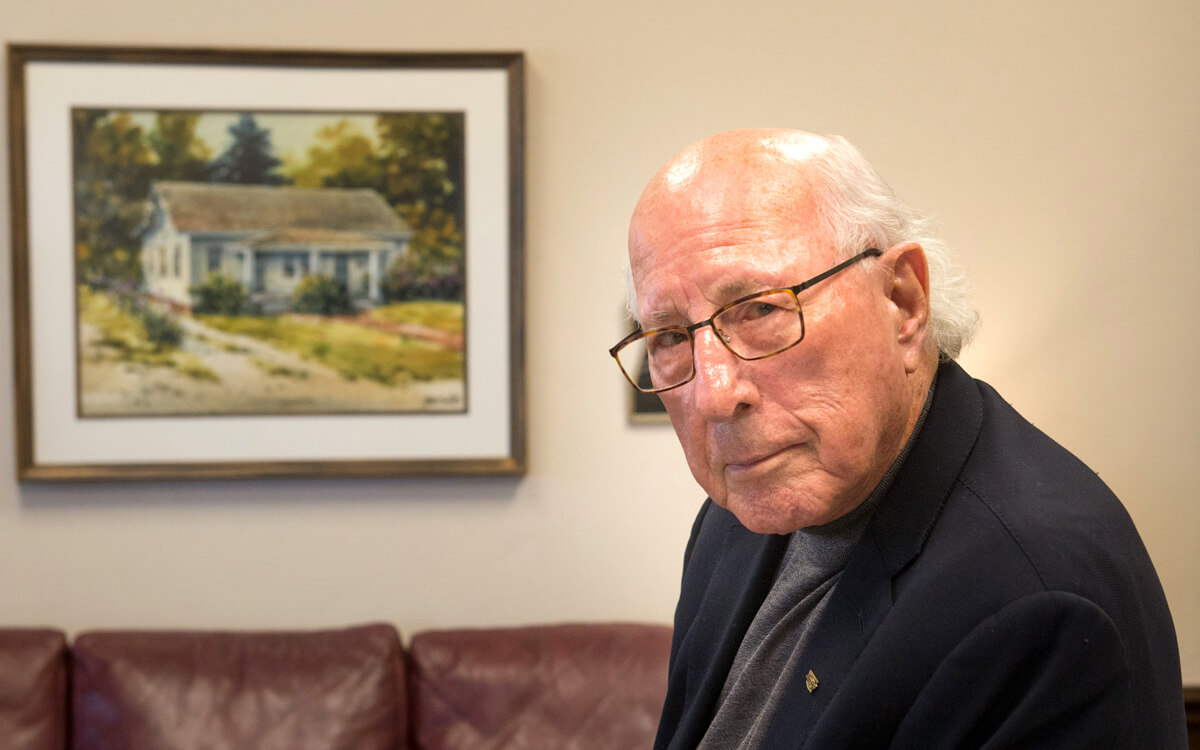
Gene Rainbolt was born Feb. 20, 1929, to Clarke and Bertie Rainbolt during the Great Depression. Rainbolt’s parents were separated. His mother was a homemaker who raised four children on her own while his father worked in sales at a wholesale grocery business.
Rainbolt wasn’t close to his father, but he remembers his childhood as a good one in the small Oklahoma town. The University of Oklahoma campus was his playground, but even though Norman was a “great place to grow up,” he was aware of the hardships facing the nation and state.
“Norman wasn’t too bad, because people worked at the university, but the nation had 25 percent unemployment,” he recalled. “It was clear to me that people had to work. So at a bright young age, I started working, doing odd jobs and that sort of thing. I was about 6 years old.”
Rainbolt remembers visiting camps of the Civilian Conservation Corps, a work-relief program that paid young men perhaps as much as $25 each month.
“My dad delivered groceries to them. I remember people coming back and asking for food,” he said. “Oklahoma had only been a state for a very short time, and there were no such things as running water or electricity in the rural areas. It was just a very, very poor rural state.”
While Rainbolt and other Oklahomans lacked fortune or food, he said they learned the value of empathy and generosity.
Rainbolt was also a bright student, earning himself a spot on the State Honor Society rolls and majoring in finance at OU. He married his elementary school friend, Jeannine Tuttle, in college. Then he joined the ROTC on campus.
“I had a choice. I could either be drafted or I could be in the ROTC program. I was smart enough to know that it was preferable to be an officer than enlisted,” Rainbolt said.
Eventually, he served in both Korea and Japan.
“It was a very maturing time. Life is a continuum of every experience we have of other people, other cultures,” he said. “I gained wisdom. I served four years, and I came back, got my master’s degree in the mid-50s. I went back overseas, working for the military a couple of years. We thoroughly loved it. The time I had was a great experience and a pleasurable time. I was married. We had no children, but I returned to finish college.”
Follow @NonDocMedia on:
‘100-year-old formaldehyde cats’
Rainbolt started college with the goal of studying psychiatry, due mostly to Griffin Memorial Hospital being located in Norman. That plan quickly went out the window.
“They enrolled me into five hours of biology in my freshman year. When they brought the 100-year-old formaldehyde cats out, I said, ‘This is not for me,’” Rainbolt said. “I’ve got to have goals.”
Because he had grown up around entrepreneurial activities and business, Rainbolt studied economics and finance. He was on his way to earning a Ph.D. to become an economics professor, but he felt he would not be outstanding as a teacher.
After taking the civilian military job in Japan, he returned to accept a job as executive vice president of First State Bank in Noble in 1959 instead.
“Banking was much more controlled and limited during that time,” he said.”But I had a comfortable position. I enjoyed the people and being involved in their lives. I considered myself a financial doctor for families.”
After three years, he acquired control of that bank and developed an expertise in managing problem banks.
“Oklahoma had laws that were so far behind the rest of the nation when it came to banking,” he said. “Over a period of time, I acquired a number of small banks all across Oklahoma. Oklahoma’s constitution was written during a populist time where people were very distrustful of business and corporations.”
‘Oklahoma was in financial crisis from 1982 to 1992’
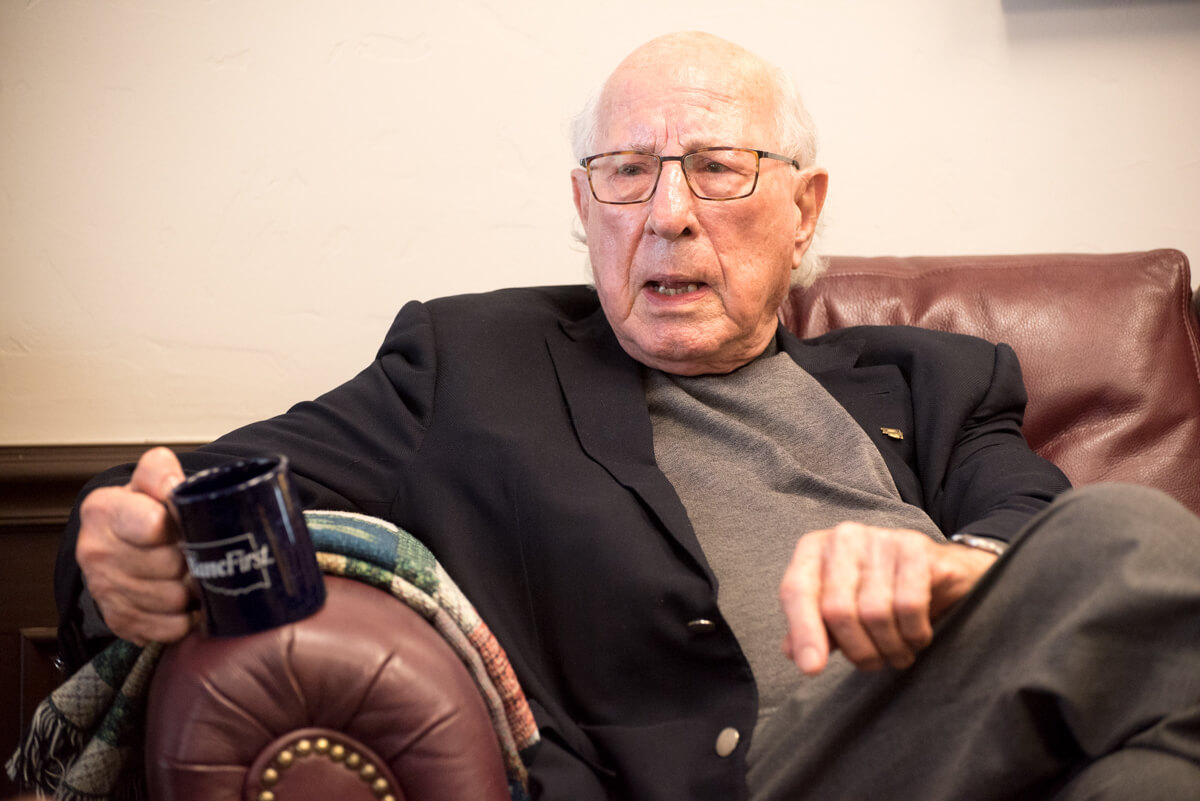
In 1962, Rainbolt acquired the First American Bank in Purcell. In 1965, he acquired Federal National Bank in Shawnee, and in 1967, he and a group of investors commenced acquiring more banks in Oklahoma, which led in 1985 to the formation of United Community Corporation, the state’s first multi-bank holding company. In 1989, BancFirst was founded, which became the largest state-chartered bank in Oklahoma with assets of $7.3 billion and offices in 59 communities.
While he grew his empire over 30 years, Rainbolt also battled the Oklahoma Legislature to update statutes and modernize state banking practices.
“When I started, the laws said a bank could only have one location and one drive-by. A corporation or holding company could only have one bank. Consequently, we had over 550 banks, which made everything very fractured,” Rainbolt said. “That also meant we had more management positions than we had qualified managers. It was all very difficult.”
RELATED
Jasmine Moran: A life of magic, war and kindness by Heide Brandes
Over the next 25 years, Rainbolt helped lead the charge to change the laws. His first success was to change the laws so a corporation could own multiple banks, and he followed that with a law in 1989 that declared individualized banks could merge.
Then came the oil bust of the 1980s.
“Oklahoma was in financial chaos from 1982 to 1992. It had a very slow, very slow recovery,” Rainbolt said.
But the revolution of the banking business wasn’t just Rainbolt’s doing. Many people helped in the effort, and in 1982, Rainbolt’s son, David, joined him in the finance and banking business.
“He was instrumental in helping change the laws,” Rainbolt said of his son. “I describe myself as combative. He’s collaborative. It’s much better to be collaborative.”
Rainbolt is also an advocate of improving and diversifying the Oklahoma economy. In addition to changing banking practices, he has also worked to improve health, education, access to capital and Oklahoma’s infrastructure. He has served in numerous civic, economic development, chamber of commerce, youth, medical, zoological, arts and banking organizations. One of his most recent projects is enhancing the entrepreneurial classes and entrepreneurial activities at universities in Oklahoma. Another has been his board membership with Oklahomans for Criminal Justice Reform.
“When we were trying to pass SQ 780 and 781, Gene was one of the main partners in helping get those reforms passed,” said Sen. George Young (D-OKC). “He spoke on panels throughout the state on the connection between criminal justice reform and economic development. When I was first elected, I was worried about racial injustice in the criminal justice system, and he agreed with me from a racial standpoint that this was something we had to change to bring the state forward.”
Rainbolt said criminal justice reform efforts need to continue and called Oklahoma’s criminal justice system “a felony factory.”
“We need to separate violence from illness and, in the process, save the state hundreds of millions of dollars and create productive citizens who will contribute to the economy,” he said.
Young praised Rainbolt’s commitment to the issue.
“I think the world of Gene,” Young said.
A lasting legacy
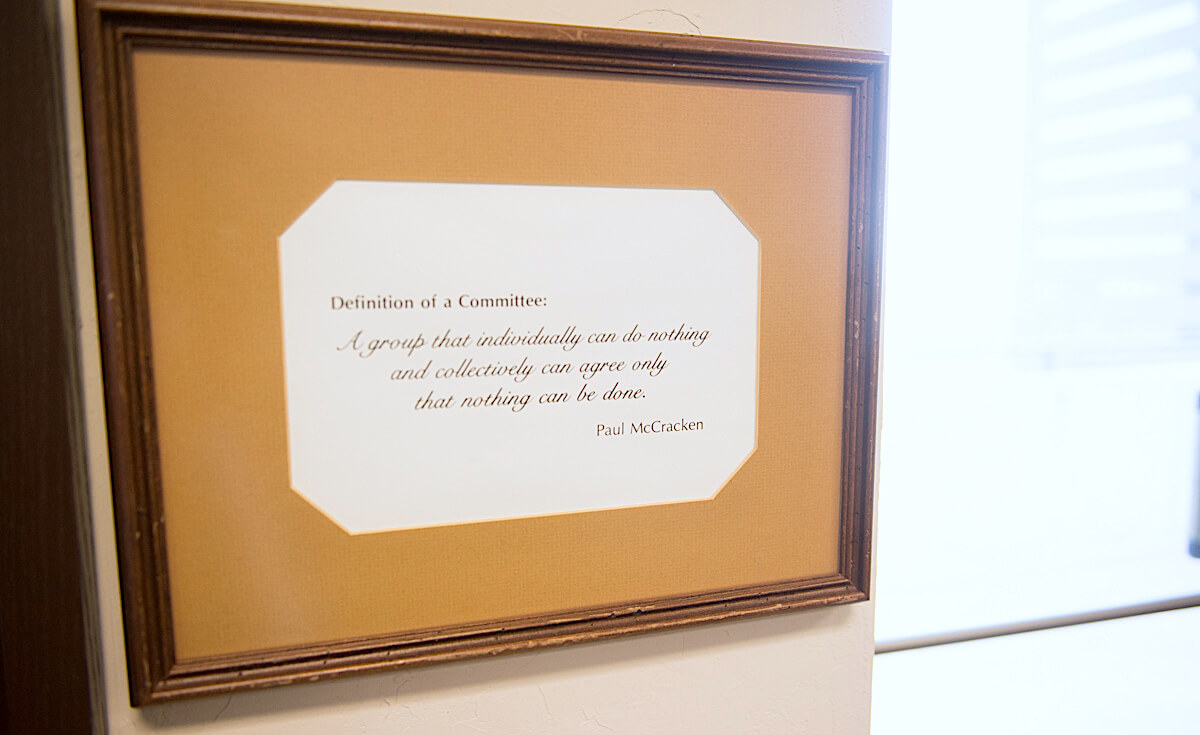
During his 60-year career, Rainbolt has served as president of the Oklahoma Bankers Association and chairman of the Academy for State Goals and the State Chamber of Oklahoma, former director of Leadership Oklahoma and the Great Expectations Foundation. He was a founding director of Calm Waters and has served on many other charitable boards. He was a member of the Leadership Council of the Charles and Peggy Stephenson Oklahoma Cancer Center and served on the Board of Visitors of M.D. Anderson Foundation.
He continues to support the University of Oklahoma, the University of Oklahoma Health Sciences Center and Oklahoma Medical Research Foundation.
Rainbolt’s contribution to the banking industry and Oklahoma, in general, has been honored in more than one way. He was selected as one of the “50 Most Powerful Oklahomans” in 2006 and was named an Oklahoma City/County Historical Society “Pathmaker” in 2004.
As a graduate of the University of Oklahoma, he was honored by the university with the Distinguished Service Award and an Honorary Doctorate. In 1999 he was inducted into the Oklahoma Hall of Fame and has received Honorary Doctorates from Oklahoma Baptist University, Oklahoma City University and Oklahoma Christian University.
In 2017, the University of Oklahoma’s new graduate business school in Oklahoma City was named the Gene Rainbolt Graduate School of Business in appreciation of a gift from the Rainbolt family to OU’s Michael F. Price College of Business. OU officials said the gift is the second largest in the history of the business college.
In 2015, Rainbolt’s life was celebrated in a biography called “Out of the Dust,” written by Tom Lindley, a former writer and editor at The Oklahoman, that explored Rainbolt’s life and his experiences in the Great Depression. The book also delves into Rainbolt’s thoughts about the obstacles preventing people from overcoming poverty.
But some of the most glowing praise and honors come from those who know Rainbolt.
Former State Sen. David Herbert remembers Rainbolt as someone who not only changed the face of banking in the state but also saved many communities from “going under.”
“I’ve known Gene for 30 years. I met him in Shawnee many, many years ago, and he’s been an icon in the banking business even back then,” Herbert said.”He has kept some communities alive with his banks. He’s a good man.”
He’s also a man who was dedicated to his work, Herbert said.
“I asked him once why he had a driver instead of driving himself, and he said he gets more work done in the backseat of the car than he does anyplace else,” Herbert said. “The Rainbolt family has had a significant impact in the area of commerce. David Rainbolt — there’s an icon by himself. He’s just like his father, and the two of them are just jewels for Oklahoma to have.”
Former Oklahoma City University President Robert Henry wrote once that Gene Rainbolt “did not give into dust, depression and despair. Because of him, thousands of businesses were created and flourished, and hundreds of thousands reaped jobs and hope.”
In February, friends and state leaders came out for Rainbolt’s 90th birthday celebration at the National Cowboy and Western Heritage Museum. In addition to a replica of the recording he titled Out of the Dust — which is also the title of the book about his 90-year life and Oklahoma history — the party included music by Billy Bob Bovine and the Embryo Transfer.
Willie Nelson even made an appearance, the second time the country star has performed for a Rainbolt birthday.
“I see him as a folk philosopher for this part of the country,” Rainbolt said. “He’s always on the side of the underdog, and I’m on the side of the underdog, too. He captures who we are about.”
Although the birthday party had a $500 price tag, the $420,000 in proceeds went to benefit cancer research at the Oklahoma Medical Research Foundation and Stephenson Cancer Center.
Staying relevant
Despite changes to the economic landscape of Oklahoma, the numerous companies and businesses Gene Rainbolt built and the successes he’s had, the man isn’t done yet.
“Whatever I do, I have to feel relevant, or I don’t want to be alive. Just living isn’t sufficient,” he said. “I’m very involved in criminal justice reform and I’m very involved in most educational activities and helping young people for college.”
Rainbolt continues to fight for education for all.
“I have a view that the only way we can eliminate poverty is through education,” he said. “There is an opportunity gap. I wish I knew the answer to eliminating that because Oklahoma’s opportunity gap is enormous. We struggle in reaching out and including every person in meaningful education.”
He supports programs like Astec Charter School, Cristo Rey Catholic High School and Dove Academy as well as sponsoring individual students to university and beyond.
He often quotes Tom Joad’s character in John Steinbeck’s “Grapes of Wrath,” when Joad has to flee a migrant camp after a police officer is killed.
“He says, ‘Well Ma, I got to go, but it’s okay because anytime anybody’s sick or hurt or in trouble, I’ll be there.’ That’s the attitude we should all have. That was my concluding remark at the Willie Nelson party the other night. I want everybody to have that attitude,” Rainbolt said.
Even at 90, Rainbolt plans to keep working and supporting his state. And while Oklahoma has persevered through the Dust Bowl, the Great Depression, the bust of the 1980s and other challenges and tragedies, Rainbolt has worked all his life to change the state through his devotion and convictions. He has never had a desire to leave.
“I love the openness and the lack of veneer and the honesty of Oklahomans. We are who we are. Oklahomans are as they appear to be,” he said.









